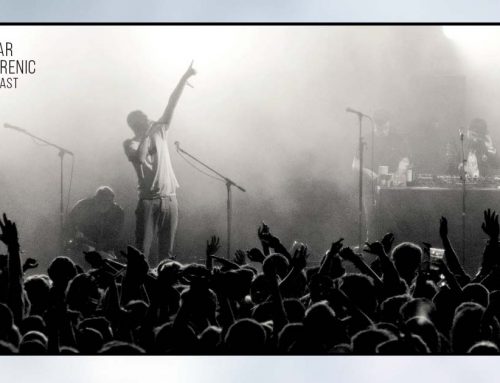When it comes to bipolar disorder, what people don’t understand greatly outweighs what people do understand.
The internet is filled with blog posts titled, “What I wish the world knew about . . .” and then filled in with something that, while seemingly common, like “being on food stamps,” is actually quite misunderstood. I love reading these articles because what I thought I knew to be true isn’t true at all. I’ve found that I only knew half the story or believed a stereotype or wasn’t aware of a key fact and that changed my perspective. Since these types of articles were able to enlighten me, I thought it a good idea to write one about bipolar disorder. So, without further ado, What I wish the world knew about bipolar disorder.
When it comes to bipolar disorder, what people don’t understand greatly outweighs what people do understand. This isn’t to insult the average person, it really isn’t their fault. Mental illness, including bipolar disorder, isn’t discussed openly. It isn’t taught in most schools, and since most people don’t understand it they either aren’t educating their children at all or passing on stereotypes and misinformation.
If I wanted to be a smart aleck, and I have been known to be one, I’d write a 25-word blog that simply said: I wish the world knew any actual fact about bipolar disorder that wasn’t based on something they saw on TV or read in a book. I do understand that wouldn’t be very helpful, although it would be very satisfying to me and to many misunderstood people living with bipolar. In the interest of enlightening the general public, I narrowed the list to three main things I wished everyone knew.
Bipolar disorder symptoms aren’t equally split
The basic definition of bipolar disorder is alternating between extreme highs (mania) and extreme lows (depression). This incorrectly leads a person to believe that the depression and mania comes in equal parts. In other words, if a person is depressed for two weeks, then they get two weeks of mania.
That isn’t true at all. It is possible to be depressed for months and then manic for two days and then right back to depressed for two months. There is no biological meter that ensures the depression and mania get equal time.
While we are talking about the symptoms of bipolar disorder, I’d like to say that mania isn’t a good thing, overall. I will admit to having some pretty incredible stories to tell about times I was manic, but I could have been hurt or hurt someone else, and those times are still affecting my life and the lives of others. Just because it was “fun while doing it” doesn’t make it okay. Mania can be dangerous and life threatening. There is a reason the stories of people who are manic are so engaging. They are filled with bad decisions, drama, and danger.
Treatments for bipolar disorder take time to work
Treatments for bipolar disorder don’t just take time to work, they take a lot of time to work. From the day I was diagnosed to the day I really felt like I had a handle on my disorder was every bit of four years.
This isn’t television. It takes a lot more than a few days or few weeks to find the correct treatment regimen. The medications don’t work quickly like aspirin, but need to be taken on a schedule over the long term so they can begin to do their job. They are maintenance drugs, not “take as needed” drugs.
As an example, on Homeland this season, one of the characters has bipolar. She starts having symptoms, so she goes to the medicine cabinet, takes some pills, and a few hours later is better. She seems to be taking them on an as-needed basis. Two pills make her symptoms better, but not gone, so later in the day she goes back and takes two more. This is not a correct portrayal of being on medication. It is barely the correct portrayal of having a headache.
Medication aside, this says nothing about the time it takes in therapy to master coping skills, learn any limitations we might have, and just learn how to go about living with a chronic illness day in and day out.
Bipolar disorder is a serious illness with a 15% death rate. It isn’t a colorful personality trait. It only makes sense that something this serious would take a significant amount of time to recover from.
Not everyone with bipolar disorder is the same
There is a lot of talk in the mental health community about how we aren’t our labels. Just because both Julie A. Fast and I have bipolar disorder doesn’t mean we are the same. Our disorder shares commonalities, such as having both experienced depression and mania, but as people, we are quite different. Even though we both have bipolar disorder, my personality is nothing like hers. Her mania took her to different places than mine did, and even side by side, we don’t act “the same.” The way our moods cycle in and out, and even the way we personally feel about what is happening is very different, just as two people watching the same movie can feel very differently about the experience. All we actually have in common are the symptoms of bipolar disorder; the way we react to them is different.
Once you decide that an illness, any illness, defines a person, you have taken a piece of their humanity away. Their lives, in your mind, become more about their illness and less about them. You can see where that would be a devastating blow to anyone, and why the world should know that isn’t true.
This article originally appeared on BPHope.com as “What I Wish the World Knew about Bipolar Disorder.“









You are right. We aren’t the same because we both have bipolar disorder. The one thing that I hate that people assume is that Just because you have really engaging stories about the things you did when you were manic doesn’t mean you enjoyed them. Mania is not always happy. It can be irritable and agitating. It can be horrible uncomfortable. So I rarely ever tell my mania stories. To ANYONE. The other thing I hate about that people assume is that I don’t have feelings in the middle of the range. I must only have the high highs and the low lows. I must not simply feel content or loved or saddened, I must jump to the extremes of the range of feelings. It is amazing to me to listen to your podcast and finally say, “They get it”. Understanding is a quality that I have run across very seldomly.
Thank you! I’m happy you are here and you are awesome! 🙂